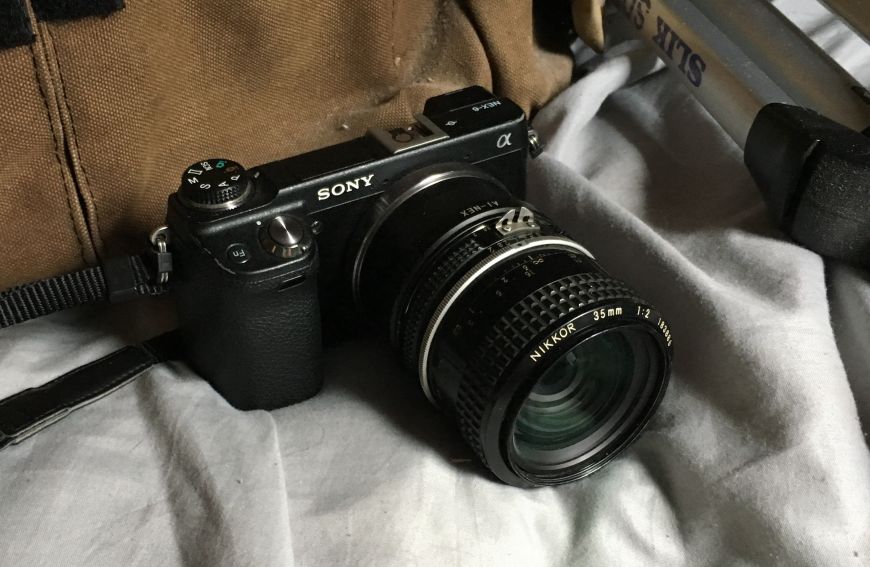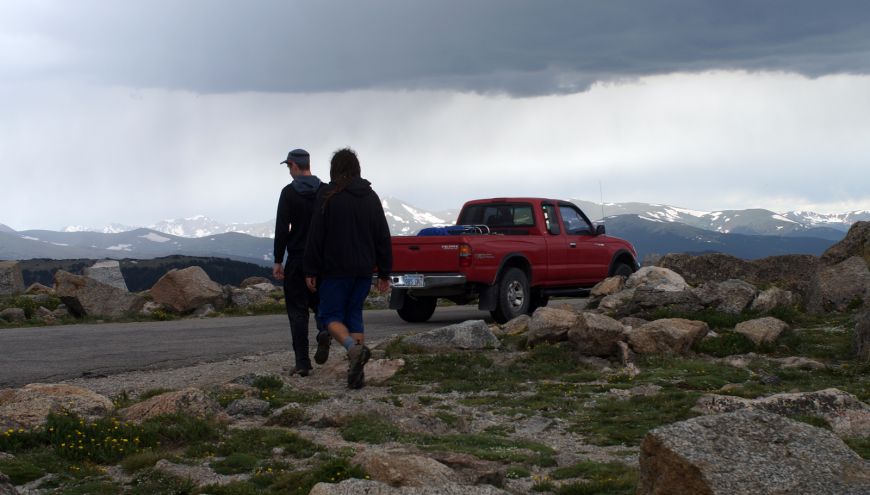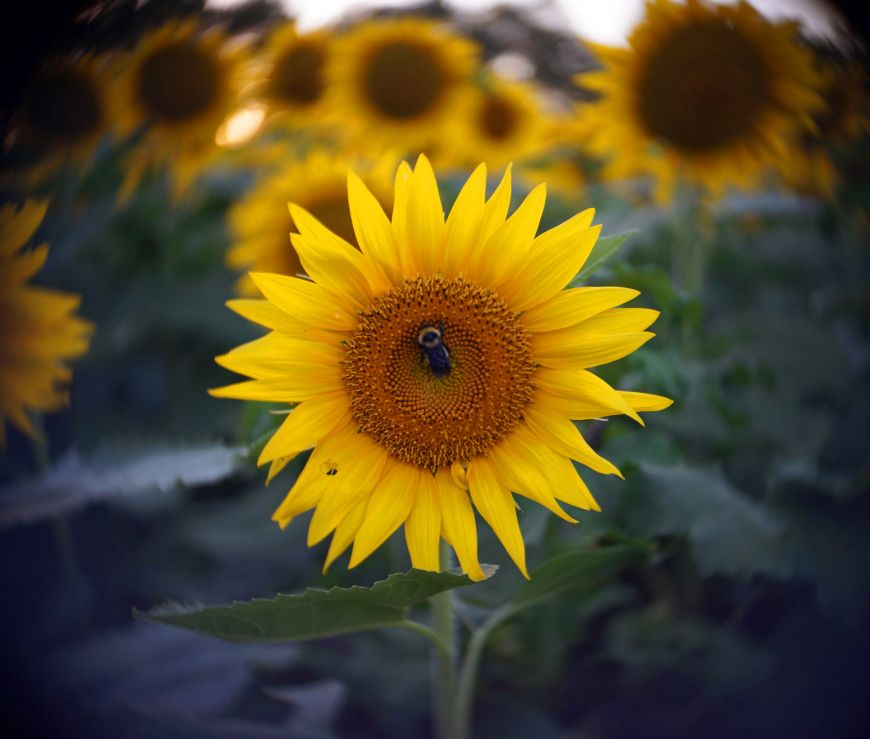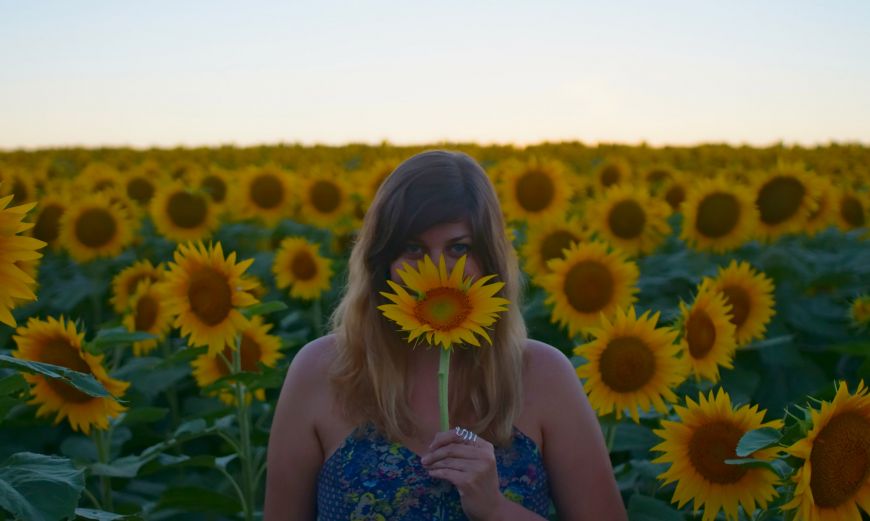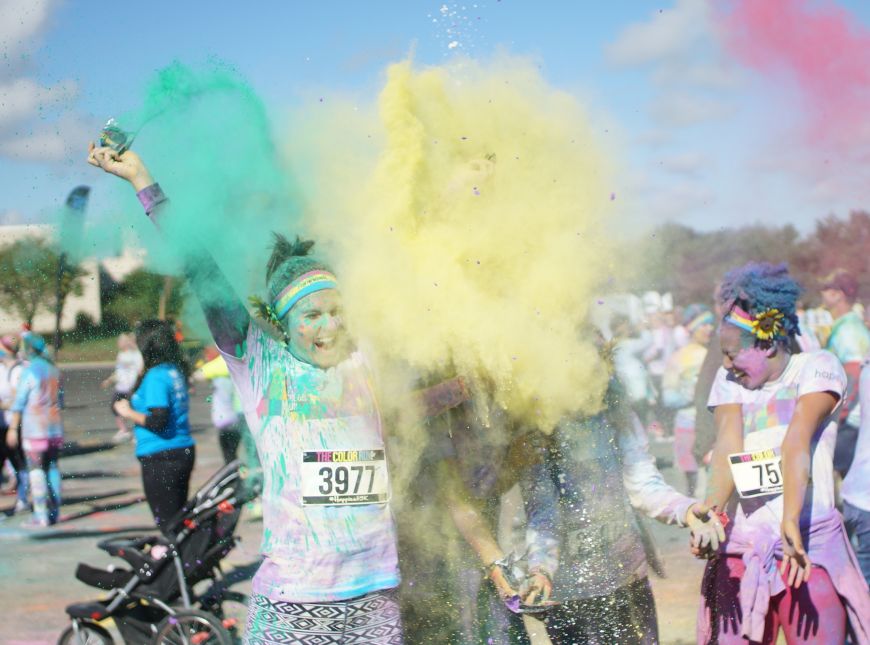Unlike the other camera I tried to adapt to my small collection of old manual focus lenses - a Nikon J1 - this Sony NEX-6 camera body is perfect!
Background: My father, a retired photographer for a newspaper, gave me much of his old photography gear - namely a set of old Nikon Nikkor AI-S prime, manual focus lenses and an old film Nikon camera body. I played with the film thing for a summer, but, digital is king. So I decided to find a modern mirrorless camera body, buy an adapter to fit the Nikon F-mount lenses to the modern camera body. My first attempt was with a a Nikon J1 and it was awful for every reason why the Sony NEX-6 is brilliant for this job.
I needed a Nikon F lens to Sony E-mount adapter, of course.
With manual focus lenses, it's all about getting the focus just right. If it's not perfect, then it's blurry. And a blurry, out of focus image is trash. Same thing for exposure.
Here's why the Sony NEX-6 is the perfect camera body for use with old, manual focus lenses:
- The focus peaking display feature, which makes manual focusing more precise by highlighting the edges that are in focus using a color of your choice (white, red, or yellow). I choose red. This is the single biggest helper in getting the focus just right, and this feature is never turned off for me.
- The aperture priority mode. With the camera in this mode, I control the aperture with the F-stop ring on the lens and the ISO number in the camera settings, and the camera dynamically sets the correct exposure level by controlling the shutter speed. The Nikon J1 could not do this. It always had to be in manual mode and all three pillars of exposure - iso, shutter speed and aperture - had to be adjusted manually for each shot. Very difficult and slow! The NEX-6 can also work just fine in any other mode including auto mode.
- The manual focus assist feature, which simply allows you to digitally zoom in on the center of the frame to make sure that your subject is in razor sharp focus. Whats nice is that there's a dedicated button on the camera body for this so it's very easy to use, much like everything else about the camera.
- The amazing digital viewfinder. Using the large display on the camera body is nice and all in low light situations, but when out in full day light it's impossible to see the screen and make sure your subject is in perfect focus. That's where the digital viewfinder comes in, and I can't stress enough how vital this is to getting the perfect shot and how beautiful the photos look though it! Well done, Sony, well done.
- The large 16.1 MP Exmor™ APS HD CMOS image sensor, with only a 1.5:1 crop factor. Again, compared to the Nikon J1 with a 2.7:1 crop factor, the Sony was far superior. With the Nikon, the crop factor was so bad that there actually existed a dark ring around the outer edge of the images because the lenses where designed to be used with full-frame 35mm film cameras. This problem was non-existent with the Sony NEX.
Let me explain how easy it is to use this camera with old manual focus lenses. It's possible for me to hand the camera+lens, with some basic setting entered in (namely, ISO turned up a little and the aperture ring in the middle of it's range, so that it's not too difficult to focus and not so dark that the shutter speed it too slow), over to a friend (who may be already a few beers into their evening), and just telling them, "point it at what you want to take a picture of, then move this ring on the lens back and forth until the thing you're taking a picture of is highlighted in red." That's it! They're now a pro photographer using some of the finest prime lenses ever made.
The ONLY downside to this setup is that the old lenses are much heavier than modern lenses, and action shots are much more difficult. I was once hired to take shots of individual runners during a marathon as they where sprinting past me! My god, I think the camera lens was smoking from the heat build-up caused by furiously adjusting the manual focus ring so much. Seriously though, the boss was impressed with how many shots came out great (good enough to hire me again for the next race) and I don't think anyone else would have dared use a manual focus lens for that event.
Here's a few samples I've taken over the past few years with this camera setup:
The lens used here was the $25 cheapo "TV" lens from Amazon. Amazing distortion effect!
For this macro shot, I used a 49mm lens to Sony E-mount reversal adapter that allowed me to reverse the lens and get really really close!
This photo was taken with the HDR effect turned on, which takes three different pictures at different exposures and then blends them together. Really cool.

